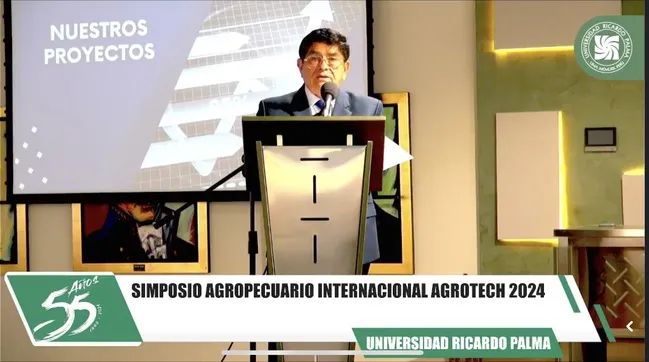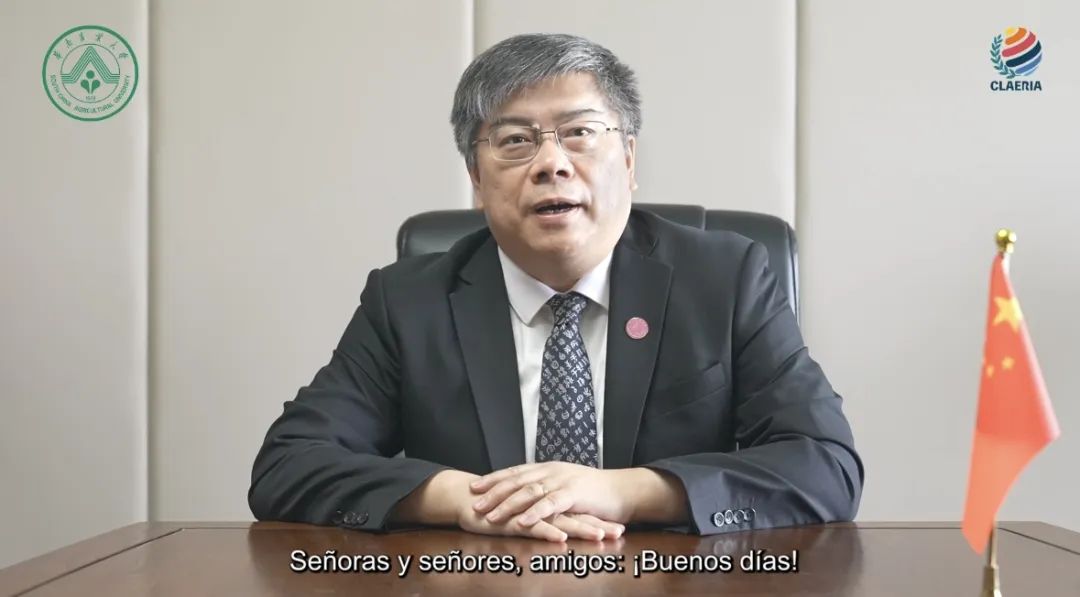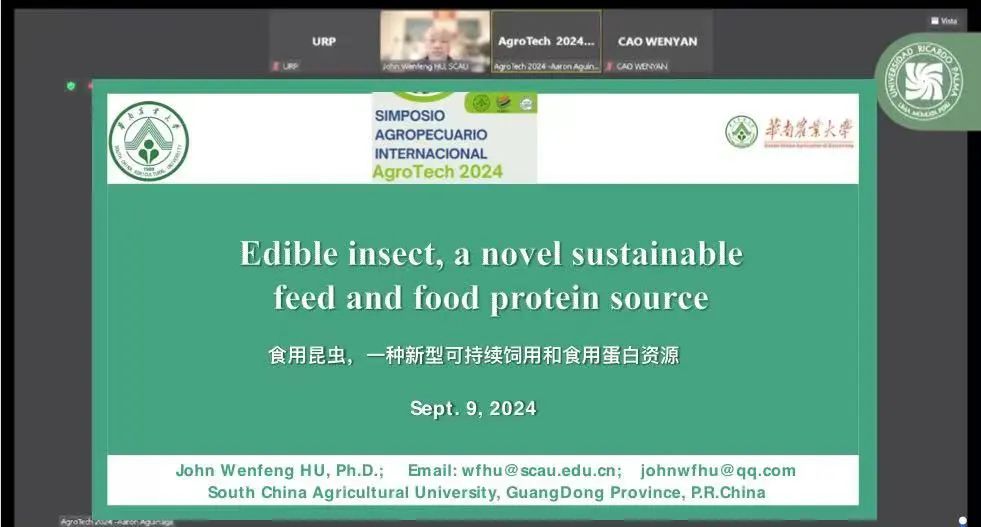Dr. Hu Wenfeng attended the “2024 International Symposium on International Agricultural and Livestock Technology”Hite [337] Publish time :2024-09-23
publisher:Yuki Chen Aditor:Zhu Jianfeng Review:Hu Wenfeng, Richard

On September 10, 2024, “2024 International Symposium on International Agricultural and Livestock Technology in Peru” was successfully held in Lima, the capital of Peru, which was jointly organized by South China Agricultural University (SCAU) and Universidad Ricardo Palma (URP), Peru. Xue Hongwei, President of South China Agricultural University (SCAU), attended the meeting in online form and delivered a speech.

Xue Hongwei said that South China Agricultural University attaches great importance to the cooperation with Peruvian universities, the school will continue to actively promote the “China and Peru” in the field of agricultural science and technology exchanges and cooperation, to help the two countries in agricultural science and technology innovation, and for the construction of the “China and Peru” community of destiny to contribute to the power of agriculture.
During the seminar, Prof. Jun Li from School of Engineering, Prof. Bingfu from School of Materials and Energy, and Associate Prof. Wenfeng Hu from School of Food made online presentations on the topics of “Intelligent Agricultural Machines and Unmanned Farms”, “Nanotechnology in Plants”, and “Edible Insects, a New Sustainable Feed and Food Protein Resource”, respectively. “Edible Insects, a New Sustainable Feeding and Edible Protein Resource” respectively, sharing the latest research results and advanced experience of SCAU in the field of agriculture and animal husbandry science and technology.

Summary of Associate Professor Hu Wenfeng's presentation
01
In 2050, the global population will reach 9.7 billion! Population growth and global problems such as environmental damage and climate warming need to be addressed urgently. In the face of a continuously growing global population, the traditional livestock and aquaculture industries are unable to satisfy human demand for protein foods (e.g., meat, eggs, and milk), and there is a need to develop sustainable new protein feeds and protein foods that are highly productive and environmentally friendly, and to reduce the dependence on soybean meal and fishmeal. Edible insects are currently the most promising new protein resource for industrialization, both as feed proteins and as direct human consumption proteins.
02
Human beings have always had the habit of eating insects, and there are many kinds of edible insects distributed in all continents of the world. Compared with plant proteins, edible insect proteins have a more balanced amino acid composition and are more suitable for use as nutrients for humans and animals;
03
Insect farming is more efficient than traditional livestock, poultry and aquaculture, featuring less land occupation, lower energy consumption, less water consumption, etc. The greenhouse effect gas emission is only 1/10 of that of beef cattle (in the case of producing equal amount of proteins), and it does not compete with human beings for food.
04
Black gadfly, yellow mealworm and cricket are edible insects that have been successfully industrialized, among which black gadfly has been the most successful. Black gadflies are farmed for a wide range of raw materials, including food processing or agricultural by-products with high water content, expired food, substandard food, and other organic wastes. Gadfly is highly adaptable to changes in temperature and humidity; it is distributed in all continents, and local wild species can be collected and domesticated as commercial breeding stock without the risk of invasion of foreign species. At present, the global production and sales volume of black gadfly has exceeded the total production of other resource insects, and it is widely used in economic animal breeding (e.g., pigs, chickens, aquatic products) and companion animal breeding (e.g., cats, dogs).
05
Edible insects will become the fifth largest source of edible protein for human beings after meat, eggs, milk and beans.
The seminar focuses on the agricultural cooperation between China and Peru, discusses the future development of agriculture and animal husbandry, and aims to strengthen the communication and cooperation between China and Peru in the field of agricultural science and technology, and jointly promote the scientific and technological innovation in agriculture and animal husbandry, so as to create a better future for the people of the two countries. This seminar is another important achievement of the cooperation between Chinese universities and Peruvian universities. In the future, under the framework of “China-Latin America Alliance”, we will further strengthen the cooperation and exchange with Peruvian universities, and make greater contribution to the promotion of scientific and technological innovation in agriculture and animal husbandry and the transformation of achievements of the two countries.
Dr. Hu Wenfeng, on behalf of the university and BioSource, attended this seminar, which is an honor for us and a recognition of our long-term persistence in the research, development and promotion of edible insect resources and the achievements we have made. We are looking forward to the development of BioSource's resource insect technology and products globally for the benefit of all mankind, and to achieve our common mission: to accelerate the transformation of mankind to sustainable feeding and food protein!
News Source.
Our university joins forces with Peruvian universities to organize the 2024 International Symposium on Agricultural Technology (scau.edu.cn)
